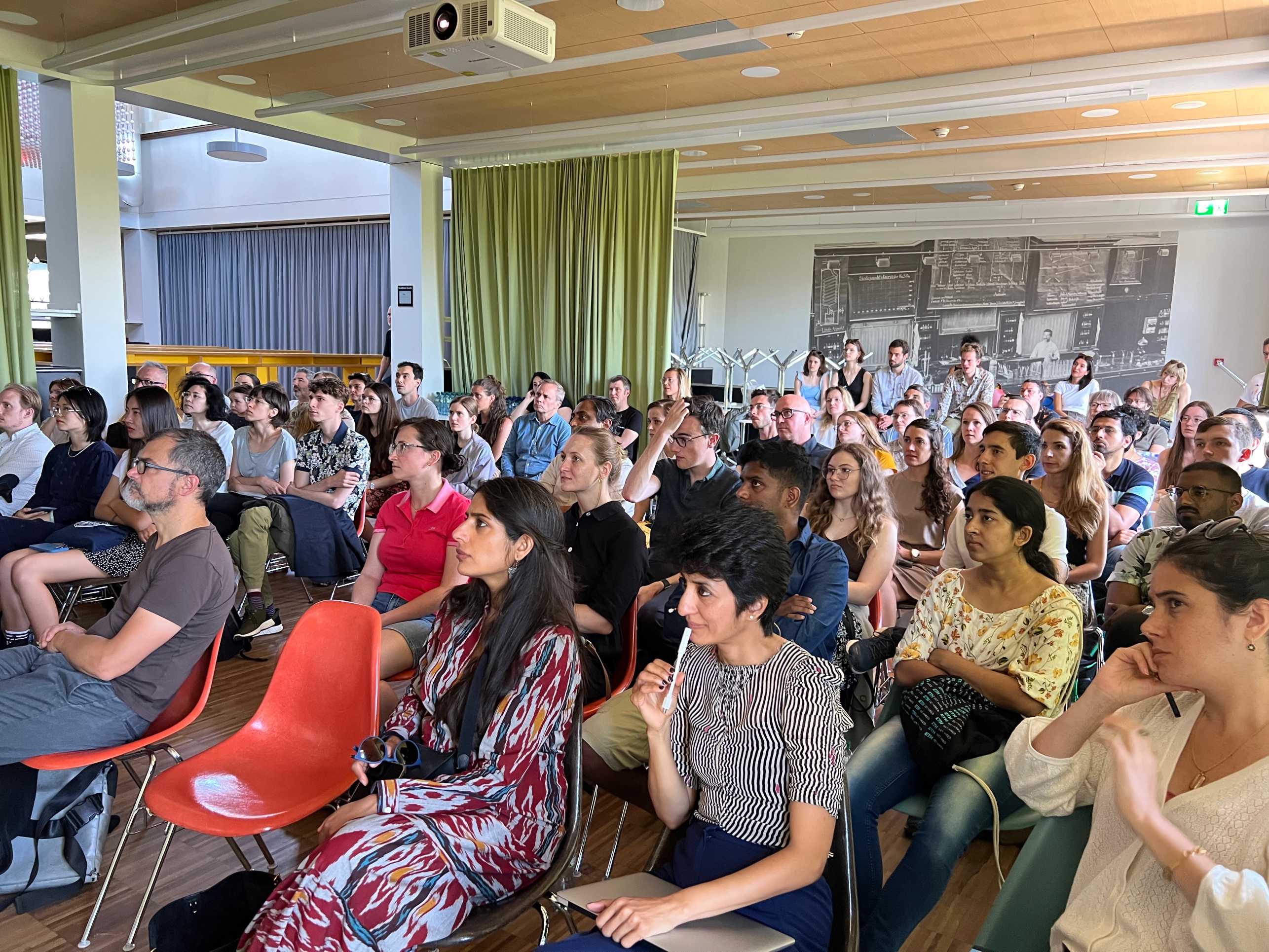Conversations
The Conversations area of activity in the AI+Art program promotes dialog and interaction between artists and scientists, a way of getting to know each other for transdisciplinary bridge building.
The Conversations are divided into four formats: AI+Art Tours, Lab Visits, Seminars, and AI+Art Conversations. While the tours and visits are rather informal and intimate, the seminars are part of the official lecture program at ETH and ZHdK, and the conversations are public events accessible to anybody.

The importance of dialogue and conversation we learn from David Graeber (1961 - 2020):
«A lot of anarchist practice […] revolves around a certain principle of dialogue; there’s a lot of attention paid to learning how to make pragmatic, cooperative decisions with people who have fundamentally different understandings of the world, without actually trying to convert them to your particular point of view.
It’s always struck me as interesting that in the ancient world, whether in India, China, or Greece, philosophy was written almost exclusively in the form of dialogue […]. Thought, self-reflective consciousness, that which we tend to see as making us truly human – was assumed to be collective (political) or dyadic, but something that almost by definition couldn’t be done all by yourself.
[…] neuroscience has shown the ancients were right: real thought is almost entirely dialogic. […] [Cognitive scientists] do make clear that that, what’s called the “window of consciousness” […] is rare and brief; it averages around maybe seven seconds. Otherwise, you are generally operating on auto-pilot. Unless of course, you are talking to someone else. […] if you are really interested and engaged with someone else you can maintain it for hours. The implications of this are profound, even though we rarely seem to acknowledge it: most self-aware thought takes place at exactly the moment when the boundaries of the self are least clear.»
«Anarchy – In a Manner of Speaking», David Graeber, Zurich 2020
